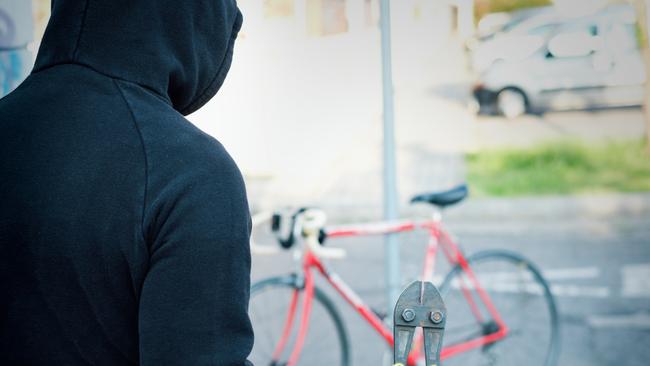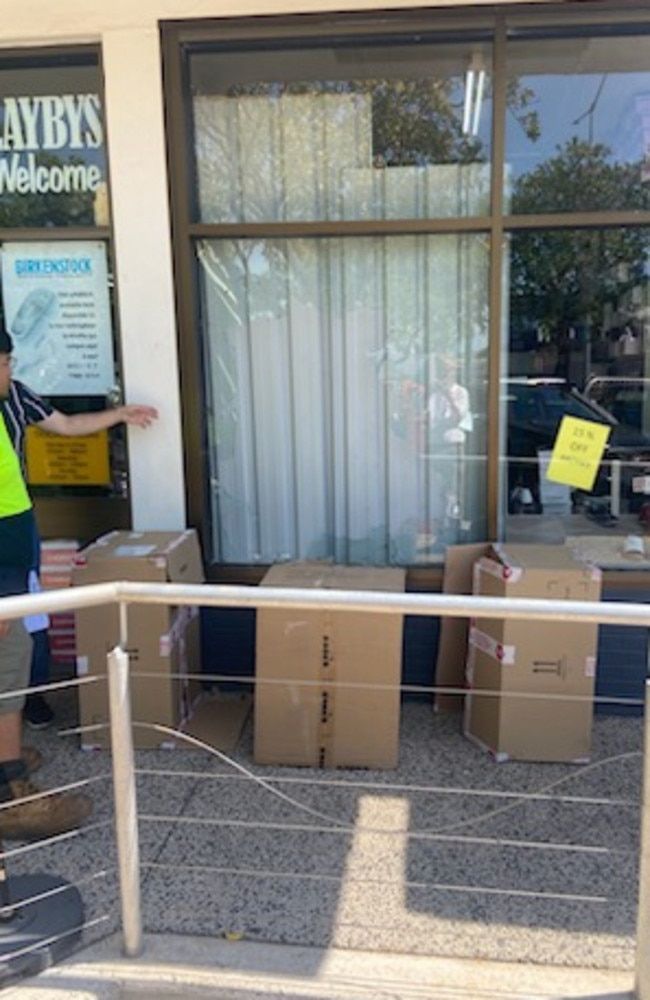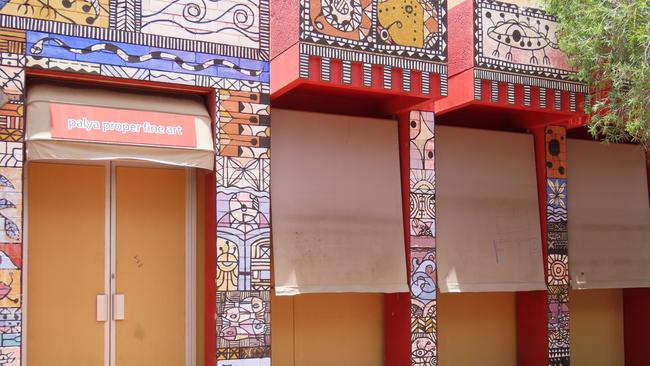Crime strikes close to home in the Northern Territory
Having lived in Darwin for the best part of 20 years, Matt Cunningham has managed to get by mostly unscathed by crime despite reluctance to lock anything. That’s all changed.
Opinion
Don't miss out on the headlines from Opinion. Followed categories will be added to My News.
In his 2002 documentary Bowling for Columbine, filmmaker Michael Moore makes a point about community fear and safety by knocking on the doors of random residents either side of the US/Canadian border.
He finds that in gun-toting America, residents are locked up in Fort Knox.
But just across the border in Canada, Moore finds people living happily with their front doors unlocked.
I’ve never been a locker. Growing up on a farm in country Victoria, I never knew anything to be locked.
I’m not even sure if our house had a key, but I know the door was never locked, even on the rare occasion we went on holidays.
And the cars were always left unlocked in the driveway, with the keys in the ignition.
I’ve lived in Darwin for the best part of 20 years and have managed to get by mostly unscathed despite my long-ingrained reluctance to lock anything.
Sadly, I’m learning to be a locker.

Like many Territorians, crime has visited my home twice in the past few months.
A few stolen bikes won’t make the news, but it will certainly upset the kids who owned them.
My new evening routine is to park our cars inside our six-foot high fence and padlock the gate shut.
You might think I should have been doing this already.
But what sort of society are we living in if we have to keep ourselves barricaded behind bars and tie down our every possession?
House break-ins are up 28 per cent in Darwin over the past year.
Commercial break-ins are up almost 9 per cent.
Last Friday I walked down to my local shops to find every window in the street had been smashed.

“We’ve had good times we’ve had bad times but in the last six months it has been so extreme it’s just ridiculous,” local barber shop owner Kathy Zafiriou said.
“As a business owner it’s just so sad to see what’s happening.”
And it’s not just property crime that’s on the rise.
Two women have been allegedly raped in broad daylight in the Darwin CBD in the past week.
A service station attendant lost an eye in an unprovoked attack in Malak.
And two people are dead and another in a critical condition in hospital after two separate shootings on Tuesday night.
The government can’t be blamed for every break-and-enter.
It’s right to say that early intervention is the long-term solution, although how that fits with the chronic underfunding of remote education revealed in The Australian newspaper over the past fortnight is difficult to fathom.

It is infuriating, however, when the government’s apparent solution to the increase in crime is to build a bigger wall.
When government ministers are quizzed about rising rates of property crime, they’ll point to initiatives like BizSecure, which offers grants of up to $15,000 to help with things like the installation of roller shutters on their windows.
One of the more depressing sights in Alice Springs is to walk down the Todd Mall and see the shutters where thriving businesses once operated.
In what at first seemed like a sick joke (but isn’t), the Alice Springs Town Council is now asking business owners to put forward an expression of interest to have their roller shutters painted in pretty colours for next year’s Mparntwe Street Art Festival.

It’s as though we’re trying to turn our crime wave into a tourist attraction.
In January, when crime reached a new peak in Alice Springs, the “Social Order Response Team” sent out a media release, telling businesses and residents what they could do to help prevent crime.
The advice for businesses included pruning trees and shrubs around your premises so criminals didn’t have a place to hide, installing monitored alarm systems and installing bollards.
Residents were told to mark their valuables in UV pen, lock away garden tools and ladders so they can’t be used to break into your home, keep trees and bushes in front of doors and windows trimmed to avoid being used as hiding places, and, of course, to lock your door.
Good advice, perhaps. But it’s also an admission that this problem is now way beyond control.
CLARIFICATION: Last week’s column wrote that demonstrators threw water on Chief Minister Natasha Fyles before chasing her down a running track in Central Australia, reducing her to tears. I’m reliably informed that no water was thrown.
- Matt Cunningham is the Sky News Darwin bureau chief and North Australia correspondent.





